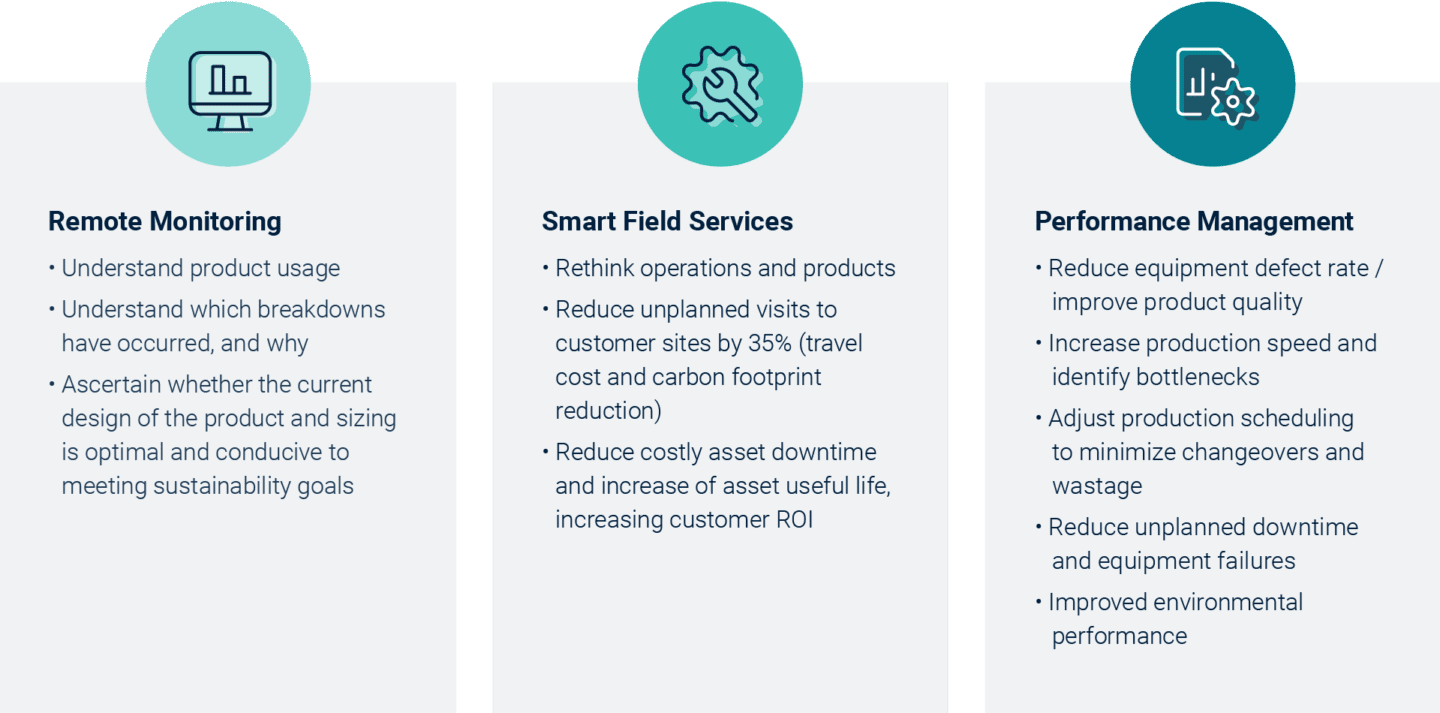When Machines Talk: Manufacturing is Revolutionized for Sustainable Growth
Transform manufacturing for sustainable growth. Reduce waste, energy consumption, and carbon emissions with IoT and predictive maintenance.

With the advent of new technologies, manufacturing continues to significantly transform. The Internet of Things (IoT) is one of the most significant technological advancements that has impacted manufacturers. IoT has brought a new wave of change that has revolutionized the manufacturing industry, notably enabling manufacturers to be more sustainability oriented, whether it’s driving efficiency, reducing waste, lowering carbon footprint, discovering insights that lead to designing greener products, working towards a circular economy, and more.
IoT enables organizations to deploy key use cases that pave the way for manufacturers and their customers to achieve their sustainability goals. A key use case in helping manufacturers and their customers in achieving their set sustainability goals, is predictive maintenance. Predictive maintenance uses data from IoT sensors to predict when a machine or component is likely to fail. This enables manufacturers to perform maintenance before the equipment fails, reducing unplanned downtime and maintenance costs. According to McKinsey & Co, prioritizing assets, and integrating predictive maintenance amongst other key factors as detailed in their model, has enabled best-in-class industrial players to lead the way, showcasing to the market that they have been able to capture value from both increased uptime and reduced maintenance costs. Deloitte Analytics Institute’s Predictive Maintenance report states that on average, predictive maintenance increases productivity by 25%, reduces breakdowns by 70%, and lowers maintenance costs by 25%.
Although manufacturing and related industries constitute the largest portion of greenhouse gas emissions in the EU, many companies are only just beginning to implement comprehensive sustainability programs. Achieving sustainable manufacturing will entail making decisions about the origin, composition, and utilization of energy and raw materials, as well as reducing waste, enhancing efficiency, and transitioning towards a circular economy. Predictive maintenance, a key part of sustainable manufacturing, which involves creating products in a way that is environmentally friendly and socially responsible, enables manufacturers to achieve this by reducing waste, energy consumption, and carbon emissions. By reducing unplanned downtime, manufacturers can optimize their production processes and reduce waste. This helps conserve natural resources, reduce energy consumption, and lower carbon emissions, working towards sustainable manufacturing and a brighter future for manufacturing. Sustainable development, as previously defined in a previous blog, is meeting the needs of the present without compromising the ability of future generations to meet their own needs. IoT is, and will continue to be, the enabler, empowering organizations to develop and manufacture sustainably.
Cumulocity IoT, an award winning, industry-leading IoT platform solution that enables organizations to deliver groundbreaking IoT-enabled digital transformation projects quickly provides manufacturers with a user-friendly interface that makes it easy to manage and analyze data from multiple sources. With the ability to deploy innovative and market disrupting use cases, ranging from remote monitoring, smart field services, and energy & carbon management, manufacturers can derive sustainability benefits by using IoT as an enabler and much more. The below graphic showcases some of these typical benefits and sustainability initiatives that relate to IoT use cases that manufacturers typically deploy.

The World Economic Forum’s State of the Connected World report, predicts that by 2025, 41.6 billion devices will be capturing data on how we live, work, move through our cities, and operate and maintain the machines on which we depend. This demonstrates the importance of, and the significant impact IoT can have on manufacturing and everyday life.
IoT is revolutionizing manufacturing by providing manufacturers with a new level of connectivity and data. Predictive maintenance is one of the most significant benefits of IoT in manufacturing, leading to a wide range of sustainability benefits, setting organizations and their customers up for sustainable growth, and empowering them to make a positive impact. Predictive maintenance has the power to help manufacturers be more sustainable by reducing waste, energy consumption, and carbon emissions. By leveraging the power of IoT and predictive maintenance, manufacturers can optimize their production processes, reduce costs, and achieve their sustainability initiatives. The future of manufacturing is exciting, specifically sustainable manufacturing, and IoT will continue to play a vital role in shaping it.
See why Cumulocity IoT is the preferred solution for manufacturers who want to implement IoT to enable sustainability, such as SMC, who prevented, detected, and ultimately avoided downtime in their pneumatic equipment through predictive maintenance.